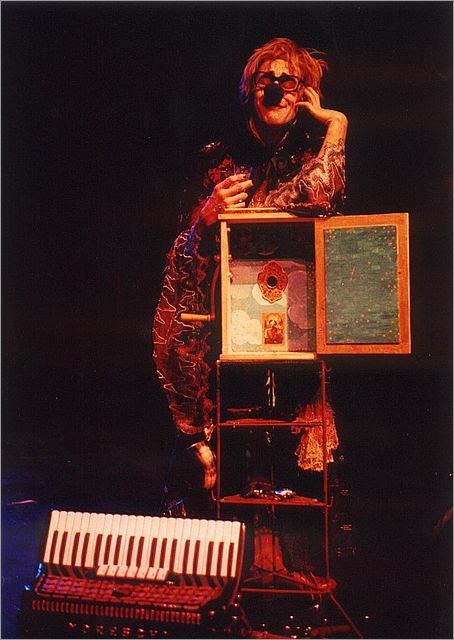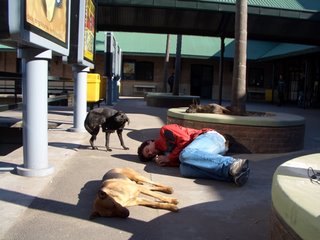
Buenos Aires boasts of more theaters than New York, the newspaper
Clarín reported about a year ago. Whether or not this statistic is true is uninteresting; why it
Clarín feels compelled to validate this city’s culture life by measuring it against Nueva Zhork is a question worth considering, but it is also one whose answer exceeds the length of a blog entry.
When comparing my private Buenos Aires with my personal Empire City, though, there is no doubt: I see more theater here. Last weekend I went to two shows.
On Friday night I accompanied my former landlady,
Nuestra Señorita de los Escupideros, to
El vuelo, which she described as a remix of Chekhov’s
Uncle Vanya and
The Seagull.
I’m unfamiliar with
The Seagull and have a faint recollection of
Uncle Vanya, so I can’t speak of the relationship between the work and its inspiration. But I can hazard a guess: neither of Chekhov’s plays involves the entire cast performing choreographed dance moves, playing ring-around-the-rosie and ass-grabbing to techno. This proved mildly bemusing, but the propensity to repeat lines ad infinitum did not.
I am all for a steady drip of
verfremsdungeffekt, but this was a bit much. What I took away from this was a sense that the actors must be very close in order to push, kiss, grope, slap, tag and spit on each other so much.
Saturday night, I went with a group to see what I was told was a clown performance. In my mind, clowns all have wigs, red noses, enormous red shoes and are either goofy or murderous.

Thankfully,
Cancionero negro did not match either of these mental images. Presented in
Absurdo Palermo, a converted warehouse across the tracks in Palermo Hollywood,
Cancionero features the androgynous Señor Neptuno who, back from the underworld, reluctantly recalls his lost loves by singing tangos, boleros, and rancheras.
Sr. Neptuno, who happens to be a friend’s, um, former clown professor, sang like a sad, sad, drunk tough guy as he twirled his hands and sashayed like a woman. From time to time he procured from his crotch a bottle of what looked to be Fernet Branca and poured glasses for the guitarist and himself.
What at first was a decidedly odd mix of melodrama and black humor grew on me and, by the end of the performance, it struck me that the show was an ideal way to resurrect songs that have been murdered over and over again by cheesy and earnest crooners.







